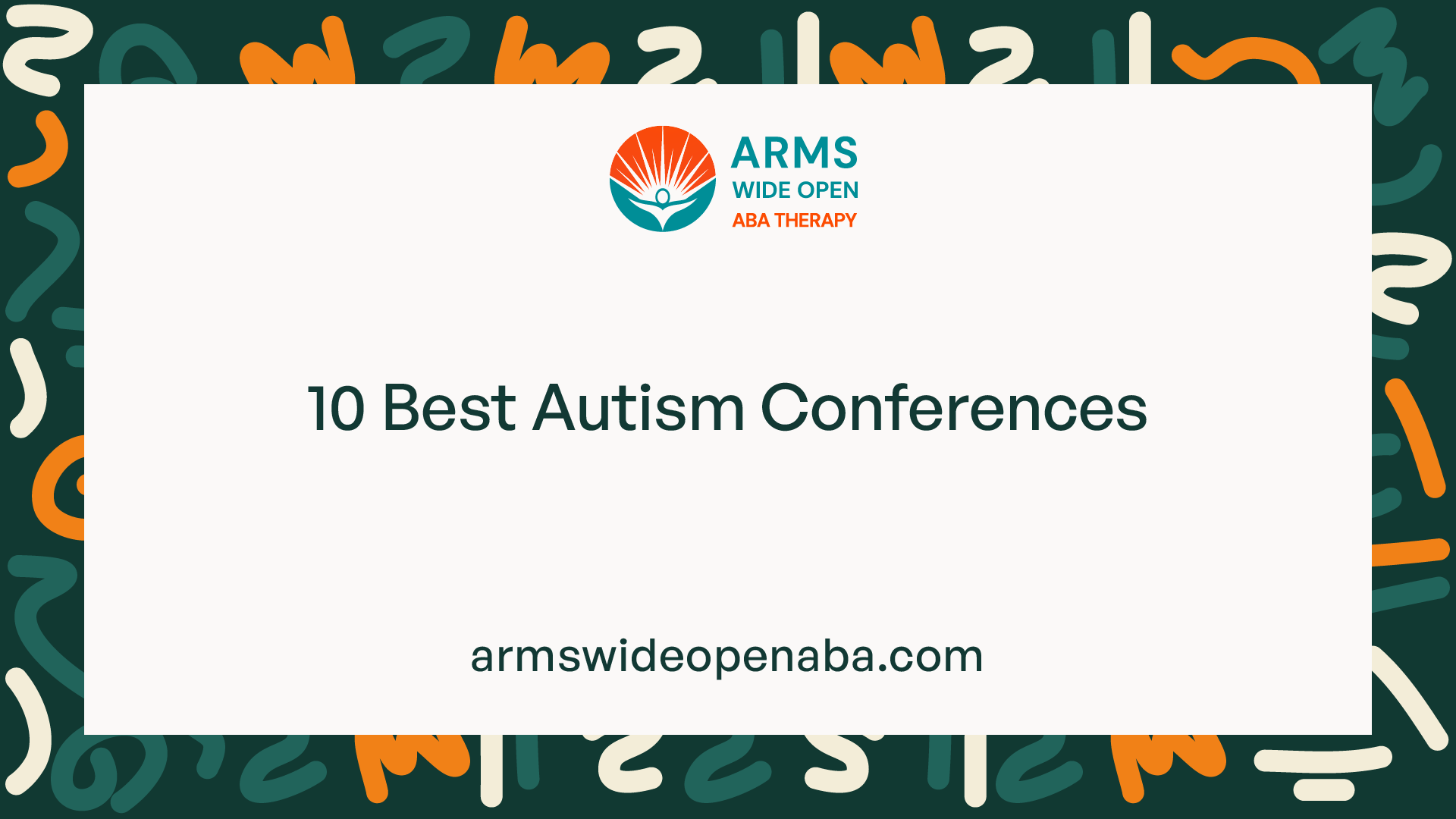10 Best Autism Conferences
Discover the 10 best autism conferences for education and advancement. Unveiling key themes and networking opportunities for professionals and families.

The Importance of Autism Conferences
Autism conferences play a vital role in the education and advancement of knowledge about autism spectrum disorders (ASD). These conferences provide a platform for professionals, researchers, educators, and families to come together, exchange information, and learn from each other's experiences. Let's explore the significance of autism conferences in advancing education and awareness, as well as connecting professionals and families.

Advancing Education and Awareness
One of the primary objectives of is to advance education and awareness about autism spectrum disorders. These conferences bring together experts and professionals from various disciplines to share the latest research findings, evidence-based practices, and innovative strategies for supporting individuals with autism.
Connecting Professionals and Families
Criteria for Selecting the Best Autism Conferences
Relevance and Focus
Expertise and Credibility
Attendee Feedback and Reviews
Top 10 Autism Conferences
Conference 1
Conference 2
Conference 3
Conference 3 is dedicated to and acceptance. It offers a comprehensive program that covers a wide range of topics, including advocacy, inclusive education, and community support.
Conference 4
Conference 5
Conference 6
Conference 7
Conference 8
Conference 9
Conference 10
Key Themes and Topics Covered
Autism Research and Innovations
- Genetic and environmental factors in autism
- Brain imaging and neurodevelopmental studies
- Advances in early detection and diagnosis
- Innovative therapies and interventions
- Technological advancements for autism support
Effective Strategies for Education and Intervention
- Individualized education plans (IEPs)
- Applied behavior analysis (ABA)
- Communication and social skills training
- Sensory integration techniques
- Inclusive education and classroom accommodations
Advocacy and Support for Individuals with Autism
- Autism awareness and acceptance
- Parental and caregiver support
- Transition planning for adulthood
- Creating inclusive communities
- Access to healthcare and services
Making the Most of an Autism Conference
Preparing for the Conference
- Review the conference agenda: Familiarize yourself with the conference agenda, including the sessions, workshops, and keynote speakers. Identify the topics that align with your interests and professional goals.
- Set clear objectives: Define what you hope to achieve by attending the conference. This could include gaining specific knowledge, learning new strategies, or expanding your professional network.
- Plan your schedule: Create a personalized schedule based on the sessions and workshops you wish to attend. Consider any time conflicts and prioritize the sessions that are most relevant to your needs.
- Prepare questions: Think of questions you have regarding the topics to be discussed. This will help you engage with presenters and fellow attendees, fostering meaningful conversations.
Networking and Collaboration Opportunities
- Engage in discussions: Participate actively in sessions, workshops, and panel discussions. Share your experiences, ask questions, and contribute to the conversation. This allows you to connect with others who share similar interests and challenges.
- Attend networking events: Take advantage of organized networking events and social gatherings during the conference. These events provide a relaxed environment for building connections and exchanging ideas with professionals from various backgrounds.
- Exchange contact information: Don't forget to exchange contact information, such as business cards or social media handles, with individuals you meet. This allows for continued collaboration and information sharing beyond the conference.
Applying Conference Learnings in Practice
- Reflect on your learnings: Take time to reflect on the information and insights gained during the conference. Identify key takeaways and consider how they can be applied to your specific context.
- Create an action plan: Develop an action plan outlining the steps you will take to integrate new strategies, interventions, or research findings into your work. Set realistic goals and timelines to ensure effective implementation.
- Share your learnings: Share your conference learnings with colleagues, families, or community members who may benefit from the knowledge you have acquired. This can be done through presentations, workshops, or informal discussions.
Sources
https://www.yellowbusaba.com/post/autism-conference
https://www.crossrivertherapy.com/autism/conferences
https://www.abtaba.com/blog/best-autism-conferences
Similar articles
We’re here to help you

Our team is here to assist you in this process. Contact us for any assistance.
it’s easy to apply
We Accept Most Insurances
Our in-network insurance partnerships make ABA therapy more accessible to families throughout our service areas.







Our Insurance Process
We'll request your insurance details to help us verify your plan's coverage for ABA therapy. Once we've received this information, we'll walk you through your benefits, including copayments, deductibles and out-of-pocket maximums, so you know what to expect in advance.
Our team will then handle the preauthorization and all the necessary paperwork.
.svg)





















.jpeg)


































.jpeg)




.jpeg)







.jpeg)











.jpeg)
















